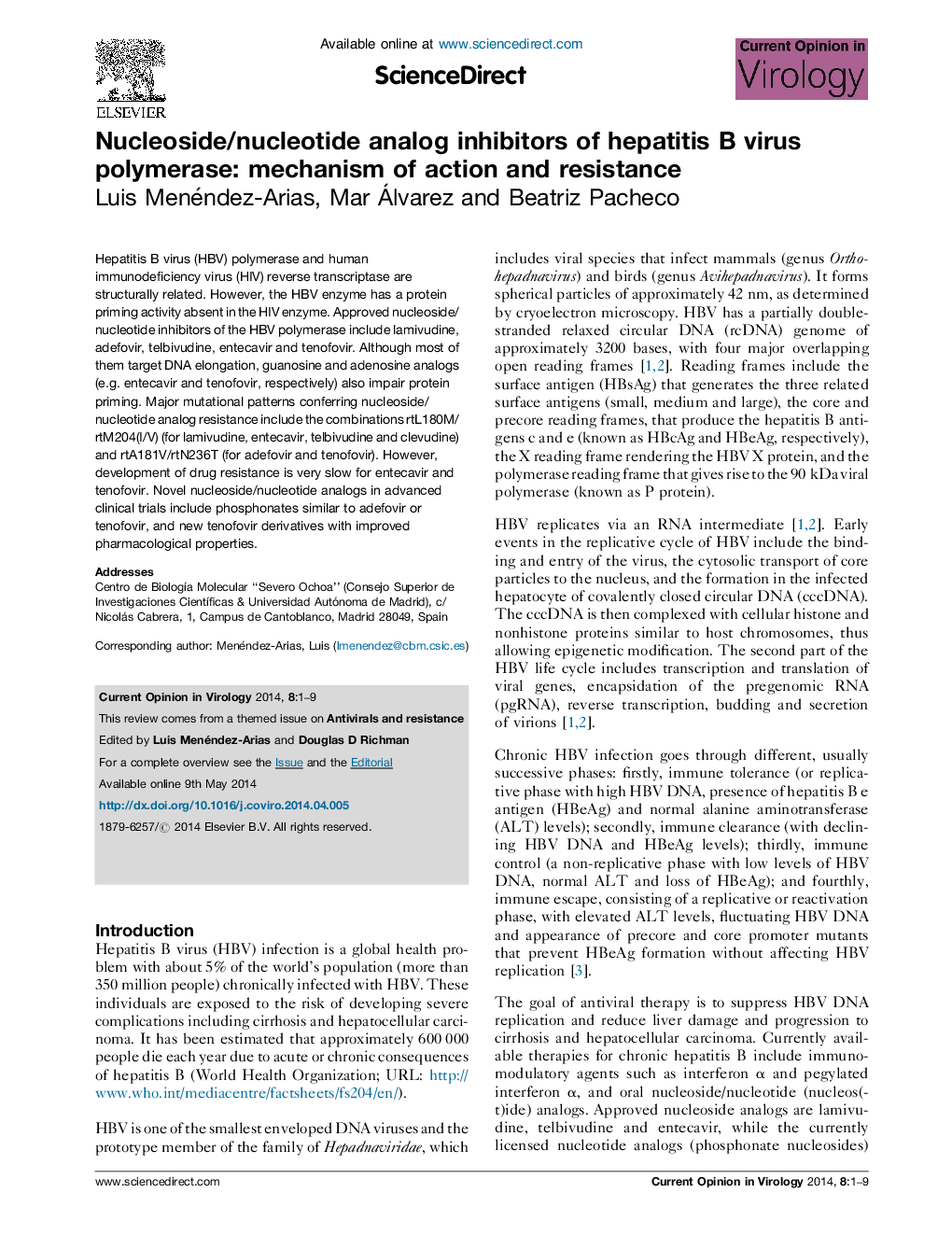| Article ID | Journal | Published Year | Pages | File Type |
|---|---|---|---|---|
| 5806756 | Current Opinion in Virology | 2014 | 9 Pages |
â¢Five nucleoside inhibitors of HBV polymerase have been approved for clinical use.â¢HBV polymerase protein priming activity is inhibited by purine analogs.â¢Entecavir and tenofovir are potent inhibitors with a very low genetic barrier.â¢Tenofovir prodrugs and other phosphonate derivatives are promising new drugs.
Hepatitis B virus (HBV) polymerase and human immunodeficiency virus (HIV) reverse transcriptase are structurally related. However, the HBV enzyme has a protein priming activity absent in the HIV enzyme. Approved nucleoside/nucleotide inhibitors of the HBV polymerase include lamivudine, adefovir, telbivudine, entecavir and tenofovir. Although most of them target DNA elongation, guanosine and adenosine analogs (e.g. entecavir and tenofovir, respectively) also impair protein priming. Major mutational patterns conferring nucleoside/nucleotide analog resistance include the combinations rtL180M/rtM204(I/V) (for lamivudine, entecavir, telbivudine and clevudine) and rtA181V/rtN236T (for adefovir and tenofovir). However, development of drug resistance is very slow for entecavir and tenofovir. Novel nucleoside/nucleotide analogs in advanced clinical trials include phosphonates similar to adefovir or tenofovir, and new tenofovir derivatives with improved pharmacological properties.
